Management Studies PhD University of Cambridge
- On campus - h Cambridge University
- Oct 1, 2024 Part-time - 5 years
- Oct 1, 2024 Full-time - 3 years

Key Course Facts
- Admission advice for international students
Course Description
Note: Applications directly to the PhD are only accepted from students who are completing (or have completed) a CJBS research MPhil, or from students completing the MPhil Economics Research at Cambridge (please see departmental website for the specific MPhil needed for each PhD pathway). The PhD Programme at Cambridge Judge Business School is designed to prepare students for an academic career in a business school. It develops PhD students who challenge conventional wisdom and advance knowledge through innovative theory and empirical research leading to publications in top-tier academic journals. The educational aim is to teach students to undertake research and produce papers for publication in top-tier journals in one of the management disciplines:
- Operations & Technology Management
- Business Economics
- Organisational Behaviour
- Organisational Theory & Information Systems
- Strategic Management
The first year of the PhD course is probationary. Students are assessed on the basis of a first-year report or comprehensive examination, and a series of coursework modules.
Entry Requirements / Admissions
Requirements for international students / english requirements.
IELTS academic test score (similar tests may be accepted as well)
- All other courses
- Graduate Degrees
- (no subscore less than 6.0)
- Undergraduate Degrees
Applicants for this course should have achieved a UK Masters (Merit).
Applicants must have a first-class honours degree (minimum GPA of 3.7/4.0) at the undergraduate level.
Applicants from the MPhil will be interviewed by a panel of faculty members. The PhD admissions committee will then make a decision on the basis of the interview report, the strength of the overall application (with particular weight on academic reference letters) and performance in the Michaelmas term courses. Admissions offers are conditional on the overall performance on the MPhil. The minimum condition is 70% or higher overall mark and 70% or higher in any dissertation.
Average student cost of living in the UK
London costs approx 34% more than average, mainly due to rent being 67% higher than average of other cities. For students staying in student halls, costs of water, gas, electricity, wifi are generally included in the rental. Students in smaller cities where accommodation is in walking/biking distance transport costs tend to be significantly smaller.
University Rankings
Positions of university of cambridge in top uk and global rankings., about university of cambridge.
The University of Cambridge is a world-renowned collegiate research university in Cambridge, England. The university is made up of 31 semi-autonomous colleges, with more than 150 academic departments and faculties organised into six schools. Famous for its tough selection process, getting into Cambridge is often considered an achievement by itself!
List of 37 Bachelor and Master Courses from University of Cambridge - Course Catalogue
Student composition of University of Cambridge
Where is this programme taught.
Similar courses


Study at Cambridge
About the university, research at cambridge.
- Events and open days
- Fees and finance
- Student blogs and videos
- Why Cambridge
- Qualifications directory
- How to apply
- Fees and funding
- Frequently asked questions
- International students
- Continuing education
- Executive and professional education
- Courses in education
- How the University and Colleges work
- Visiting the University
- Term dates and calendars
- Video and audio
- Find an expert
- Publications
- International Cambridge
- Public engagement
- Giving to Cambridge
- For current students
- For business
- Colleges & departments
- Libraries & facilities
- Museums & collections
- Email & phone search
- Postgraduate Studies
- Faculty of Economics
- Research overview
- Econometrics Research Group - Papers
- Econometrics Research Group - Cambridge Working Papers in Economics
- Microeconomic Theory Research Group - Papers
- Microeconomic Theory Research Group - Cambridge Working Papers in Economics
- Macroeconomics Research Group - Papers
- Macroeconomics Research Group - Cambridge Working Papers in Economics
- Empirical Microeconomics Research Group
- Empirical Microeconomics Research Group - Cambridge Working Papers in Economics
- History Research Group - Cambridge Working Papers in Economics
- Papers and Publications
- Cambridge Working Papers in Economics (CWPE)
- Research Intranet (Raven Login Required)
- The Janeway Institute
- The Keynes Fund
- Research Contact
- People overview
- Noriko Amano-Patiño
- Debopam Bhattacharya
- Florin Bilbiie
- Peter Bossaerts
- Charles Brendon
- Vasco Carvalho
- Tiago Cavalcanti
- Meredith Crowley
- Matthew Elliott
- Aytek Erdil
- Robert Evans
- Elisa Faraglia
- Leonardo Felli
- Eric French
- Edoardo Gallo
- Tripos supervisions
- Chryssi Giannitsarou
- Selected Articles
- Working Papers
- Popular Press
- Past PhD Students
- Invited Lectures
- Christopher Harris
- Economics of Religion in India Book
- Demography Book
- Oliver Linton
- An old link to some of my papers
- A poem by Robert Graves
- Christopher Rauh
- Alexander Rodnyansky
- Mikhail Safronov
- Gabriella Santangelo
- Flavio Toxvaerd
- Julius Vainora
- Some Recent Articles
- Research Projects
- Efficiency Assessment
- Supervisions
- Weilong Zhang
- Ivano Cardinale
- Giancarlo Corsetti
- William H Janeway
- Pierre Mella-Barral
- Theofanis Papamichalis
- Simona Paravani
- Mark Salmon
- Patrick Allmis
- Nazanin Babolmorad
- Seda Basihos
- Leonard Bocquet
- Daniele Cassese
- George Charlson
- Chuan-Han Cheng
- Joris Hoste
- Konstantinos Ioannidis
- Caroline Liqui Lung
- Antonis Ragkousis
- Jason Schoeters
- Jerome Simons
- Robert Woods
- Michael Ashby
- Victoria Bateman
- Francisco Beltran
- Collin Constantine
- Yujiang River Chen
- Rupert Gatti
- Emanuele Giovannetti
- Pauline Goyal-Rutsaert
- Myungun Kim
- Nigel Knight
- Vasileios Kotsidis
- Domique Lauga
- Kamiar Mohaddes
- Mary Murphy
- Dario Palumbo
- Cristina Peñasco
- Cristiano Ristuccia
- Isabelle Roland
- Julia Shvets
- Oleh Stupak
- Simon Taylor
- Anna Watson
- Publications - Since 2001
- Interviews and Lectures
- Jeremy Edwards
- Refereed Papers
- Other Publications
- Work in Progress
- Selected Publications
- Downloadable Publications
- Economics as Social Theory
- Sir James Mirrlees
- Downloadable Conference Presentations
- Regulation, Privatisation, Energy, Electricity
- Transport: Road and Rail
- Risk, Industrial Organisation, Optimal Growth, Dynamic Inconsistency
- Taxation, Public finance, Cost-benefit analysis
- Transition Economies and Development
- Recent Conference Presentations
- Jose Gabriel Palma
- Published Articles
- Forthcoming Papers
- Newspaper, Magazine and Online Articles
- Forewords/Prefaces
- Book Reviews
- Unpublished Papers
- Lecture Audio, Video and Podcast Recordings
- Archive Working Papers
- Biographical
- Biographical (long version)
- William Peterson
- Bob Rowthorn
- Honours and Awards
- Geoff Whittington
- Selection Committee
- Academic Staff - A to E
- Academic Staff - F to H
- Academic Staff - I to M
- Academic Staff - N to Q
- Academic Staff - R to V
- Academic Staff - W to Z
- Academic Staff - Office Hours
- Past Visitors
- Prospective Academic Visitors Information
- Application Form
- Rules and Categories of Visitors
- Visiting Doctoral Students
- Visiting Students Application Form
- Razan Amine
- Laura Araújo De Freitas
- Marium Ashfaq
- Deniz Atalar
- Kilian Bachmair
- Gerardo Baldo
- Balduin Bippus
- Saru Chaudhary
- Adrian Chung
- Radu Cristea
- Zixuan Deng
- Mar Domenech-Palacios
- Lukas Freund
- Luigi Dante Gaviano
- Guillem Gordo-I-Bach
- Darija Halatova
- Andrew Hannon
- Lea Havemeister
- Shengjuan He
- Rebecca Heath
- Christian Höhne
- Darren Hoover
- Benedikt Kagerer
- Kilian Kamkar
- Ganesh Karapakula
- Alastair Langtry
- Sean Lavender
- Weiguang Liu
- Ana Lleo-Bono
- Fred Seunghyun Maeng
- Shane Mahen
- Fergus McCormack
- Manuel Montesinos
- Mathis Momm
- Jamie Moore
- James Morris
- Shania Mustika
- Felix Mylius
- Cheuk Fai Ng
- Lennart Niermann
- Tianyu Pang
- Charles Parry
- Dmitrii Petrukhin
- Benjapon Prommawin
- Vivek Roy-Chowdhury
- Diogo Salgado Baptista
- Niklas Schmitz
- Kishen Shastry
- Sarah Rose Taylor
- Christian Tien
- Ho-Yung Antonia Tsang
- Carles Vila Martínez
- Nicholas Waltz
- Yi (Amanda) Wang
- Shu Feng Wei
- Alessa Widmaier
- Mingmei Xiao
- Yinfeng Zeng
- Mingxi Zhang
- Xiaoxiao Zhang
- Yiyang Zhang
- Yuting (Tina) Zhang
- Zhaocheng Zhang
- Henning Zschietzschmann
- Professional Services Staff
- Job Market Candidates
- Teaching overview
- University's Blended Learning Site
- Apply overview
- Economics Open Days 2023
- Economics Prospectus
- A Guide for Prospective Students
- Preliminary Part I Reading List
- Why Choose Economics
- Course Description
- Course Structure
- Course Requirements
- How to Apply
- Students Finance
- Frequently Asked Questions (FAQs)
- Entry Requirements
- How and When to Apply
- Finance Overview and Funding
- Core Modules
- Optional Modules
- Applicant Mentoring Programme
- Doctoral Training Partnership
- ESRC Studentships
- Example Course Structure
- PhD Modules
- Careers / Placements
- EDGE (European Doctoral Group in Economics)
- Social Events
- Postgraduate Open Day
- Postgraduate Life
- Postgraduate Guide 2023
- Cambridge University Graduate Economics Society
- Economics Postgraduate Fund
- Postgraduate Admissions - Contacts
- The Cambridge Environment
- Introduction to the Faculty
- Student Life
- Alumni overview
- Alumni Newsletter
- Alumni Webinars
- Online Giving
- Faculty Info overview
- Information for Staff (Intranet)
- Find the Faculty
- Provision for Students with Disabilities
- History of the Faculty
- Sheilagh Ogilvie
- Caroline Hoxby
- Joan Robinson
- Women in Economics Events
- Student & Staff Behaviour
- Women in Economics
- Faculty IT Support
PhD in Economics
- Advanced Diploma in Economics
- MPhil in Economics
- MPhil in Economic Research
- MPhil in Finance and Economics
- MPhil in Economics and Data Science

This is the most advanced programme of graduate studies in Economics at Cambridge. Upon its completion, candidates are awarded a PhD degree for producing a thesis of high-quality, original, and publishable research over a period of four years (full-time) and seven years (part-time).
A good number of our PhD students receive full or partial funding for their studies, from a variety of funding bodies, such as the ESRC and the Gates Foundation .
Our PhD students receive high quality training on a variety of research methods and are exposed to cutting edge research conducted by our own Faculty members, as well visitors to the Faculty (via the Cambridge-INET Institute , seminars, PhD workshops, locally organised conferences, etc.). Faculty members can supervise a wide range of topics from six broadly defined research areas: microeconomic theory, macroeconomics, econometrics, applied microeconomics, economic history and alternative approaches to economics.
PhD students in Cambridge benefit from a high faculty-to-student ratio and therefore form close relationships with many Faculty members. They also forge strong links with our post-doctoral researchers, and they actively participate in the Faculty’s vibrant research life. They have access to a wide range of facilities, such as their own desk/office space in the same building as regular Faculty members, computing equipment, a variety of software and access to a wide range of databases.
PhD students are encouraged to attend academic conferences and showcase their research work in a variety of ways. Upon completions of their studies, many of our PhD students become academics, or researchers at international or government research institutions (see recent job market placements here ).
Explore here the profiles of our current PhD students.
To obtain the degree of PhD in Economics, students need to:
1. Obtain the Certificate of Postgraduate Study (CPGS) . If accepted for the PhD degree, you will be registered initially for the Certificate of Postgraduate Study (CPGS) in Economics. Students registered for the CPGS are required to:
- Attend the 'How to do Economics' lecture course. Other postgraduate courses in research methods are organised by the Schools of Humanities and Social Sciences and the Physical Sciences, and are available to all PhD students.
- Undertake a minimum of four courses from PhD or MPhil Modules from at least two subject areas. You must achieve a pass mark (60%) on each component of the coursework. Students who fail any examinations will be called for a viva on the coursework.
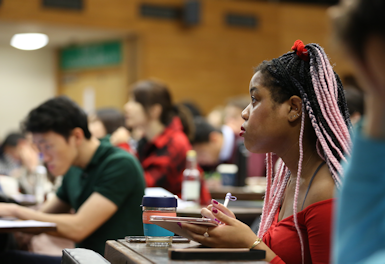
- Write a research proposal (maximum length 10,000 words) that should include a review of the relevant literature, a research question, and outline of a research design and methods. The expectation is that this proposal will be for a piece of research that could form the basis of one chapter of a PhD dissertation. You will be given an oral examination on this piece of work and must perform to a satisfactory standard.
- Attend (a) one of the three research workshops (on microeconomics, macroeconomics or econometrics) at which research students present both their own work and recent papers in the literature - assessment of workshops will be arranged by course organisers; (b) attend at least one of the Faculty's general seminars in which papers are given both by outside speakers and Faculty members;
- To be registered for the PhD submit an acceptable piece of research (first year chapter) of not more than 20,000 words. The piece of research submitted must be of a standard that would enable it to form the basis of one-third of your eventual PhD thesis. This means that it must contain research that could be expanded upon to constitute one-third of the PhD thesis.
2. Once upgraded to PhD status, a student concentrates on her or his PhD dissertation. In general the thesis format is either in the form of a book divided into chapters, or of three or more connected articles; in either case, the Faculty has a strict limit of 60,000 words. As research progresses, there will be opportunities to present work in progress at research workshops attended by Faculty members and research students. PhD students will also be required to attend research seminars given by outside speakers and Faculty members.
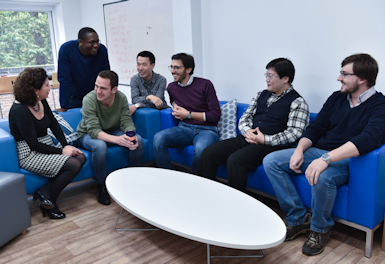
Upon completion and submission of the PhD thesis, students do an oral examination (viva) with two examiners, one internal to the University of Cambridge (not the supervisor or research advisor), and one external (from any other University in the UK or the rest of the world).
After a successful thesis defence, the examiners recommend awarding the degree of PhD.
Faculty of Economics Austin Robinson Building Sidgwick Avenue Cambridge CB3 9DD UNITED KINGDOM
Telephone: +44 1223 335200
Fax: +44 1223 335475
Site Privacy & Cookie Policies
Find Us (details and maps)
with University of Cambridge Maps
with Google Maps
Associated Websites
Janeway Institute
COVID-19 Economic Research
Keynes Fund
Application Emails
Undergraduate Admissions: (for enquiries about the BA in Economics) [email protected]
Graduate Admissions: (for enquiries about the Diploma, MPhil and PhD courses) [email protected]
General Emails
Faculty Office: (for all other enquiries) [email protected]
Webmaster: (for enquiries about the website) [email protected]
Marshall Library: [email protected]
© 2024 University of Cambridge
- University A-Z
- Contact the University
- Accessibility
- Freedom of information
- Terms and conditions
- Undergraduate
- Spotlight on...
- About research at Cambridge

PhD and MPhil Research Degrees
- Research topics
- Research degree programme
- Graduate community
- Student views
- Applications
- Current Opportunities
Research Degrees Overview
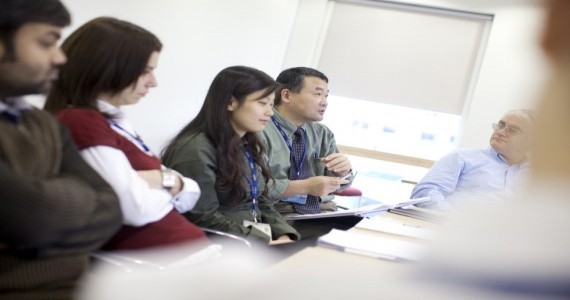
Potential research topics within the IfM encompass the full range of management, technology and policy issues to address some of the key issues in modern manufacturing and working extensively with industry.
Qualifications
The IfM is part of the Department of Engineering and offers the following research degrees:
- PhD in Engineering
- MPhil in Engineering
Research areas
Research at the IfM spans policy, management through to the science and technology of manufacturing processes. Full details of research areas and potential supervisors are available here .
Research student community
The IfM has around 120 research students from a range of backgrounds including those with industrial experience and from around the globe. Further information is available about the Graduate Community and find out what our research students think on our research student views webpage.
The IfM welcomes applications from a wide range of disciplines who have or expect to obtain a first class or strong 2i honours degree or equivalent. Information about how to apply can be found here
Applications for admission must be submitted to the Postgraduate Admissions Office. Full details of the process can be found here .
Studentships
Further information is available on the Funding Opportunities webpage.

- Institute for Manufacturing
- 17 Charles Babbage Road
- Cambridge CB3 0FS
- +44 (0)1223 766141
- [email protected]
- Site Map | Freedom of Info | Privacy
- Stay in touch:

- Artificial Intelligence
- Asset Management
- Business Model Innovation
- Computer Aided Manufacturing
- Decision-Making for Emerging Technologies
- Design Management
- Digital Manufacturing
- Distributed Information & Automation Laboratory
- Fluids in Advanced Manufacturing
- Industrial Photonics
- Industrial Resilience
- Industrial Sustainability
- Inkjet Research
- Innovation and Intellectual Property
- International Manufacturing
- Manufacturing Industry Education Research
- NanoManufacturing
- Science, Technology & Innovation Policy
- Strategy and Performance
- Technology Enterprise
- Technology Management
- Service Alliance
- University Commercialisation and Innovation Policy Evidence Unit
- About IfM ECS
- Consultancy
- Professional development
- For business
- For government
- For universities
- Open courses
Department of Engineering
Accessibility | © University of Cambridge 2016
Smart. Open. Grounded. Inventive. Read our Ideas Made to Matter.
Which program is right for you?

Through intellectual rigor and experiential learning, this full-time, two-year MBA program develops leaders who make a difference in the world.
A rigorous, hands-on program that prepares adaptive problem solvers for premier finance careers.
A 12-month program focused on applying the tools of modern data science, optimization and machine learning to solve real-world business problems.
Earn your MBA and SM in engineering with this transformative two-year program.
Combine an international MBA with a deep dive into management science. A special opportunity for partner and affiliate schools only.
A doctoral program that produces outstanding scholars who are leading in their fields of research.
Bring a business perspective to your technical and quantitative expertise with a bachelor’s degree in management, business analytics, or finance.
A joint program for mid-career professionals that integrates engineering and systems thinking. Earn your master’s degree in engineering and management.
An interdisciplinary program that combines engineering, management, and design, leading to a master’s degree in engineering and management.
Executive Programs
A full-time MBA program for mid-career leaders eager to dedicate one year of discovery for a lifetime of impact.
This 20-month MBA program equips experienced executives to enhance their impact on their organizations and the world.
Non-degree programs for senior executives and high-potential managers.
A non-degree, customizable program for mid-career professionals.
PhD Program
Program overview.
Now Reading 1 of 4
Rigorous, discipline-based research is the hallmark of the MIT Sloan PhD Program. The program is committed to educating scholars who will lead in their fields of research—those with outstanding intellectual skills who will carry forward productive research on the complex organizational, financial, and technological issues that characterize an increasingly competitive and challenging business world.
Start here.
Learn more about the program, how to apply, and find answers to common questions.
Admissions Events
Check out our event schedule, and learn when you can chat with us in person or online.
Start Your Application
Visit this section to find important admissions deadlines, along with a link to our application.
Click here for answers to many of the most frequently asked questions.
PhD studies at MIT Sloan are intense and individual in nature, demanding a great deal of time, initiative, and discipline from every candidate. But the rewards of such rigor are tremendous: MIT Sloan PhD graduates go on to teach and conduct research at the world's most prestigious universities.
PhD Program curriculum at MIT Sloan is organized under the following three academic areas: Behavior & Policy Sciences; Economics, Finance & Accounting; and Management Science. Our nine research groups correspond with one of the academic areas, as noted below.
MIT Sloan PhD Research Groups
Behavioral & policy sciences.
Economic Sociology
Institute for Work & Employment Research
Organization Studies
Technological Innovation, Entrepreneurship & Strategic Management
Economics, Finance & Accounting
Accounting
Management Science
Information Technology
System Dynamics
Those interested in a PhD in Operations Research should visit the Operations Research Center .

PhD Program Structure
Additional information including coursework and thesis requirements.

MIT Sloan Predoctoral Opportunities
MIT Sloan is eager to provide a diverse group of talented students with early-career exposure to research techniques as well as support in considering research career paths.
Rising Scholars Conference
The fourth annual Rising Scholars Conference on October 25 and 26 gathers diverse PhD students from across the country to present their research.
Now Reading 2 of 4
The goal of the MIT Sloan PhD Program's admissions process is to select a small number of people who are most likely to successfully complete our rigorous and demanding program and then thrive in academic research careers. The admission selection process is highly competitive; we aim for a class size of nineteen students, admitted from a pool of hundreds of applicants.
What We Seek
- Outstanding intellectual ability
- Excellent academic records
- Previous work in disciplines related to the intended area of concentration
- Strong commitment to a career in research
MIT Sloan PhD Program Admissions Requirements Common Questions
Dates and Deadlines
Admissions for 2024 is closed. The next opportunity to apply will be for 2025 admission. The 2025 application will open in September 2024.
More information on program requirements and application components
Students in good academic standing in our program receive a funding package that includes tuition, medical insurance, and a fellowship stipend and/or TA/RA salary. We also provide a new laptop computer and a conference travel/research budget.
Funding Information
Throughout the year, we organize events that give you a chance to learn more about the program and determine if a PhD in Management is right for you.
PhD Program Events
June phd program overview.
During this webinar, you will hear from the PhD Program team and have the chance to ask questions about the application and admissions process.
July PhD Program Overview
August phd program overview, september 12 phd program overview.
Complete PhD Admissions Event Calendar
Unlike formulaic approaches to training scholars, the PhD Program at MIT Sloan allows students to choose their own adventure and develop a unique scholarly identity. This can be daunting, but students are given a wide range of support along the way - most notably having access to world class faculty and coursework both at MIT and in the broader academic community around Boston.
Now Reading 3 of 4

Profiles of our current students
MIT Sloan produces top-notch PhDs in management. Immersed in MIT Sloan's distinctive culture, upcoming graduates are poised to innovate in management research and education. Here are the academic placements for our PhDs graduating in May and September 2024. Our 2024-2025 job market candidates will be posted in early June 2024.
Academic Job Market
Doctoral candidates on the current academic market
Academic Placements
Graduates of the MIT Sloan PhD Program are researching and teaching at top schools around the world.
view recent placements
MIT Sloan Experience
Now Reading 4 of 4
The PhD Program is integral to the research of MIT Sloan's world-class faculty. With a reputation as risk-takers who are unafraid to embrace the unconventional, they are engaged in exciting disciplinary and interdisciplinary research that often includes PhD students as key team members.
Research centers across MIT Sloan and MIT provide a rich setting for collaboration and exploration. In addition to exposure to the faculty, PhD students also learn from one another in a creative, supportive research community.
Throughout MIT Sloan's history, our professors have devised theories and fields of study that have had a profound impact on management theory and practice.
From Douglas McGregor's Theory X/Theory Y distinction to Nobel-recognized breakthroughs in finance by Franco Modigliani and in option pricing by Robert Merton and Myron Scholes, MIT Sloan's faculty have been unmatched innovators.
This legacy of innovative thinking and dedication to research impacts every faculty member and filters down to the students who work beside them.
Faculty Links
- Accounting Faculty
- Economic Sociology Faculty
- Finance Faculty
- Information Technology Faculty
- Institute for Work and Employment Research (IWER) Faculty
- Marketing Faculty
- Organization Studies Faculty
- System Dynamics Faculty
- Technological Innovation, Entrepreneurship, and Strategic Management (TIES) Faculty
Student Research
“MIT Sloan PhD training is a transformative experience. The heart of the process is the student’s transition from being a consumer of knowledge to being a producer of knowledge. This involves learning to ask precise, tractable questions and addressing them with creativity and rigor. Hard work is required, but the reward is the incomparable exhilaration one feels from having solved a puzzle that had bedeviled the sharpest minds in the world!” -Ezra Zuckerman Sivan Alvin J. Siteman (1948) Professor of Entrepreneurship
Sample Dissertation Abstracts - These sample Dissertation Abstracts provide examples of the work that our students have chosen to study while in the MIT Sloan PhD Program.
We believe that our doctoral program is the heart of MIT Sloan's research community and that it develops some of the best management researchers in the world. At our annual Doctoral Research Forum, we celebrate the great research that our doctoral students do, and the research community that supports that development process.
The videos of their presentations below showcase the work of our students and will give you insight into the topics they choose to research in the program.
Attention To Retention: The Informativeness of Insiders’ Decision to Retain Shares
2024 PhD Doctoral Research Forum Winner - Gabriel Voelcker
Watch more MIT Sloan PhD Program Doctoral Forum Videos

Keep Exploring
Ask a question or register your interest
Faculty Directory
Meet our faculty.

Study at Cambridge
About the university, research at cambridge.
- Undergraduate courses
- Events and open days
- Fees and finance
- Postgraduate courses
- How to apply
- Postgraduate events
- Fees and funding
- International students
- Continuing education
- Executive and professional education
- Courses in education
- How the University and Colleges work
- Term dates and calendars
- Visiting the University
- Annual reports
- Equality and diversity
- A global university
- Public engagement
- Give to Cambridge
- For Cambridge students
- For our researchers
- Business and enterprise
- Colleges & departments
- Email & phone search
- Museums & collections
- Institute of Criminology
- News overview
- Institute Awards and Prizes
- About overview
- How to Find Us
- Room Bookings
- Current Vacancies
- Annual Reports
- Quicklinks overview
- Institute of Criminology Merchandise
- Research overview
- Research Centres
- Research Projects
- Publications overview
- Publications July - December 2023
- The Cambridge Crime Harm Index
- Prospective Students overview
- MPhil Courses overview
- PhD in Criminology overview
- Current PhD Topics
- Master of Studies (MSt) Courses
- Undergraduate Courses in Criminology
- Funding Opportunites
- People overview
- Academic & Research Staff
- Affiliated Lecturers
- Associated Teaching Staff
- Administrative, IT and Library Staff
- PhD Students
- Current Visitors
- The Sir Leon Radzinowicz Visiting Fellowship
- Become A Visitor
- Academic Career Pathways (ACP)
- Events overview
- Upcoming Events
- Event Recordings overview
- 2020 Events
- 2019 Events
- 2021 Events
- 2022 Events
- 2023-events
- 2024 Events
- Pre-2019 Events overview
- PRC conference 2014 overview
- PRC Conference 2014 Talk 1
- PRC Conference 2014 Talk 2
- PRC Conference 2014 Talk 3
- PRC Conference 2014 Talk 4
- Past Events
- Bill McWilliams Memorial Lecture
- Nigel Walker Lecture
- Library overview
- Library Services
- Collections
- Online Resources
- Student Initiatives overview
- Student Initiatives - Policy and Application
- Cambridge Decolonising Criminology Network
- Alumni overview
- Keeping In Touch
- Alumni Benefits
- MSt Thesis Database
MSt in Applied Criminology and Police Management (Police Executive Programme)
- Prospective Students
- Student Initiatives
pep_logo_small.jpg

Welcome to Cambridge
This Course webpage has been designed to provide you with essential information about the MSt in Applied Criminology and Police Management (Police Executive Programme), which can be accessed by clicking on the tabs below. Our latest brochure can be downloaded here.
Fees : The total charge for this course is £31,000* (charged at £15,500 per annum)
* The £31,000 covers the University composition fee (£15,450) and Extra costs of £15,550 which include; mandatory residential teaching blocks and other supplementary costs.
The application portal for 2025 is not yet open.
Please note the application portal will open in September 2025.
Funding opportunities.
The Institute has a limited number of studentships that MSt students can apply for. Details and application deadlines can be found on the Funding Opportunities webpage .
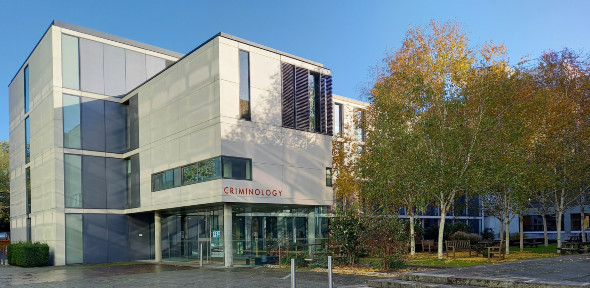
The Course Aims and Objectives
The Cambridge Police Executive Programme ( MSt in Applied Criminology and Police Management ) is a two year part-time course which offers a globally relevant framework for preserving and enhancing democratic policing in the face of international challenges through developing senior leaders in policing, law enforcement and associated organisations. Our commitment to precision in targeting, testing and tracking police intrusions on public liberty using the best empirical and statistical evidence available provides a key tool for the kind of public “dialogic” strategy for maintaining police legitimacy developed at Cambridge. Our theoretical and empirical development of the concept of residual general deterrence provides the basis for refuting claims that police can be abolished without major increases in violent crime.
For all our mid-career students (all police leaders or analysts from around the UK and world) enrolled on our part-time MSt Degree course, it offers an intellectual foundation for both police reform and public support.
Four 'Intellectual Pillars' for Police Leaders
This MSt course is underpinned by several key concepts, including: Targeting resources , Testing practices , and Tracking delivery of services .
The course helps students learn through continuing professional development, collaborative study, small group discussions, critical thinking and reflective practice. Participants on the course are encouraged to 'reflect on, review and analyse past, current and future practice', as part of what Professor Lawrence Sherman described as the ' future of policing research '.
1) Matching police interventions with proportionately harmful risks.
2) Measuring harm systematically with a Crime Harm Index.
3) Deciding how to make decisions using the “Triple-T” of targeting, testing & tracking as the basis of achieving a fourth “T” of Transformation, and
4) Professionalizing police practice through the training of pracademics (Practitioner-academics) who will create, apply and promote the use of research to provide better evidence for decision-making and to deliver better management and leadership of their agencies.
These pillars frame our commitment to democratic policing, sustaining the rule of law, safeguarding and protecting the vulnerable and prevent.
The Course Structure
Teaching blocks:.
There are three teaching blocks in the first year:
- Block A (March/April)
- Block B (July)
- Block C (September)
The residential teaching blocks incorporate four key modules: Criminological Theory , Evidence-Based Policing , Leadership and Management , and Research Methods . The modules cover a range of topics and use a range of delivery styles including seminars, lectures, symposia, practical exercises and project work.
Reading Lists:
Reading Lists are provided prior to each teaching block, giving required and suggested further reading.
Personal Supervisor:
Students are allocated a personal supervisor with whom they can discuss any aspect of the course (essay choice, dissertation topic, time management, sources of information, academic development and support) on a one-to-one basis. Independent study time is incorporated into the teaching blocks.
In the second year, supervision may pass to another member of staff who is better suited to supervise the dissertation topic and in some cases a separate subject-specific dissertation advisor may also be allocated to work alongside the supervisor.
Library Facilities:
Students have access to college library facilities as well as the Radzinowicz (Institute of Criminology), Squire Law Library (Faculty of Law), the Cambridge Judge Business School and University Library.
Other Resources:
Student support materials are also available via a virtual learning environment (VLE): Moodle.

Students who only complete one year:
Students who successfully undertake only one year of study, rather than proceeding to the Master's year, will be awarded the Postgraduate Certificate in Applied Criminology and Police Management .
Teaching Staff and Industry Experts
- Research undertaken by MSt in Applied Criminology and Police Management students demonstrates that just 15-minutes a day on foot patrol reduces serious violence in crime 'hot spots'.
Bedford Police : Bland, M., Leggetter, M. Cestaro, D., & Sebire, J. (2021) Fifteen Minutes per Day Keeps the Violence Away: a Crossover Randomised Controlled Trial on the Impact of Foot Patrols on Serious Violence in Large Hot Spot Areas . Cambridge Journal of Evidence-Based Policing , 5, p.93-118
Essex Police : Basford, L., Sims, C., Agar, I., Harinam, V., & Strang, H. (2021) Effects of One-a-Day Foot Patrols on Hot Spots of Serious Violence and Crime Harm: a Randomised Crossover Trial . Cambridge Journal of Evidence-Based Policing , 5, p.119-133
Institute of Criminology Sidgwick Avenue Cambridge CB3 9DA T: +44 (0)1223 335360 F: +44 (0)1223 335356 E: [email protected]
Contact: [email protected]
Site privacy & cookie policies, about the institute, quick links.
Exchange Online
Desktop Services DS-File Store
Faculty of Law
University of Cambridge
© 2024 University of Cambridge
- Contact the University
- Accessibility
- Freedom of information
- Privacy policy and cookies
- Statement on Modern Slavery
- Terms and conditions
- University A-Z
- Undergraduate
- Postgraduate
- Research news
- About research at Cambridge
- Spotlight on...

- Study at Cambridge
- About the University
- Research at Cambridge
- Colleges and departments
- Email and phone search
- For business
- For current students
- Libraries and facilities
- Museum and collections
Search form
- Events and open days
- Fees and finance
- Student blogs and videos
- Why Cambridge
- Qualifications directory
- How to apply
- Fees and funding
- Frequently asked questions
- International students
- Continuing education
- Executive and professional education
- Course in education
- Giving to Cambridge
- How the University and Colleges work
- Visiting the University
- Spotlight on...
- About research at Cambridge
Department of Engineering
- Overview of the Department
- 21st Century Engineers
- Staff and Student Directory
- Department Newsletter
- Alumni Relations
- How to Find Us
- Keep in touch
- Undergraduates Overview
- Prospective Undergraduates
- Information for Staff
- Current Undergraduates
- Postgraduates Overview
- Taught courses (MPhil and MRes)
- Centres for Doctoral Training (CDTs)
- PhD in Engineering
- MPhil in Engineering
- Part-time study
- Applying for taught courses and CDTs
- Applying for research courses
- Applying for part-time study
- Requirements for postgraduate students
- English language requirements
- International equivalencies
- Funding opportunities for applicants
- Current Postgraduate Students
- Information for staff
- Research Overview
- Energy, Fluids and Turbomachinery
- Electrical Engineering
- Mechanics, Materials and Design
- Civil Engineering
Manufacturing and Management
- Information Engineering
- Energy, Transport and Urban Infrastructure
- Manufacturing, Design and Materials
- Bioengineering
- Complex, Resilient and Intelligent Systems
- Research news
- Research Integrity
- Collaboration Overview
- Student Placements
- Short Student Projects
- Longer Projects and Frameworks
- Academic Partnerships
- Consulting and Other Services
- Giving to the Department
- Events and Outreach Overview
- Events and Seminars
- Work Experience at the Department of Engineering
- Services Overview
- Building and Estate Services
- Design & Technical Services
- Health and Safety
- Printing Services
- Centre for Languages and Inter-Communication
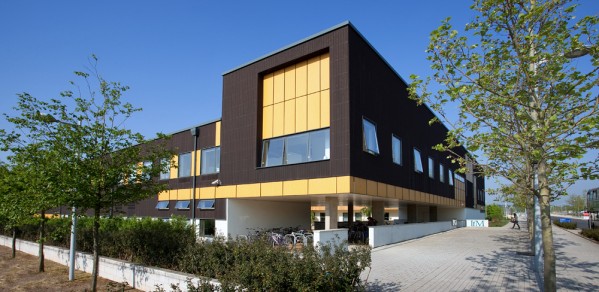
Institute for Manufacturing
Strategic Aim: Developing new understanding of manufacturing technology, operations, strategy and policy, in close partnership with industry, in order to improve industrial performance.
Research within the Manufacturing and Management Division, also known as the Institute for Manufacturing (IfM) , addresses the most pressing issues facing manufacturing today. The Head of the IfM is Professor Tim Minshall . The IfM’s research activities are carried out in partnership both with government and with industry across a wide variety of sectors both in the UK and around the world and lead to practical techniques that companies can apply to improve their strategy, operations and technology.
Research is clustered into a number of areas, broadly categorized as management, technology and policy. Management research includes topics such as the integration of technology considerations into business decisions; international manufacturing and supply networks; servitization; industrial sustainability and business model innovation. Technology research covers industrial photonics, inkjet technologies and fluids in advanced manufacturing, nanomanufacturing and distributed information and automation systems. A number of these research themes also consider implications for policy and the Centre for Science, Technology and Innovation Policy focuses on the policy dimensions of translating new science and engineering ideas into novel technologies and emerging industries.

Study at Cambridge
About the university, research at cambridge.
- Undergraduate courses
- Events and open days
- Fees and finance
- Postgraduate courses
- How to apply
- Postgraduate events
- Fees and funding
- International students
- Continuing education
- Executive and professional education
- Courses in education
- How the University and Colleges work
- Term dates and calendars
- Visiting the University
- Annual reports
- Equality and diversity
- A global university
- Public engagement
- Give to Cambridge
- For Cambridge students
- For our researchers
- Business and enterprise
- Colleges & departments
- Email & phone search
- Museums & collections
- Course Directory
PhD in Public Health and Primary Care
Postgraduate Study
- Why Cambridge overview
- Chat with our students
- Cambridge explained overview
- The supervision system
- Student life overview
- In and around Cambridge
- Leisure activities
- Student unions
- Music awards
- Student support overview
- Mental health and wellbeing
- Disabled students
- Accommodation
- Language tuition
- Skills training
- Support for refugees
- Courses overview
- Department directory
- Qualification types
- Funded studentships
- Part-time study
- Research degrees
- Visiting students
- Finance overview
- Fees overview
- What is my fee status?
- Part-time fees
- Application fee
- Living costs
- Funding overview
- Funding search
- How to apply for funding
- University funding overview
- Research Councils (UKRI)
- External funding and loans overview
- Funding searches
- External scholarships
- Charities and the voluntary sector
- Funding for disabled students
- Widening participation in funding
- Colleges overview
- What is a College?
- Choosing a College
- Terms of Residence
- Applying overview
- Before you apply
- Entry requirements
- Application deadlines
- How do I apply? overview
- Application fee overview
- Application fee waiver
- Life Science courses
- Terms and conditions
- Continuing students
- Disabled applicants
- Supporting documents overview
- Academic documents
- Finance documents
- Evidence of competence in English
- AI and postgraduate applications
- Terms and Conditions
- Applicant portal and self-service
- After you apply overview
- Confirmation of admission
- Student registry
- Previous criminal convictions
- Deferring an application
- Updating your personal details
- Appeals and Complaints
- Widening participation
- Postgraduate admissions fraud
- International overview
- Immigration overview
- ATAS overview
- Applying for an ATAS certificate
- Current Cambridge students
- International qualifications
- Competence in English overview
- What tests are accepted?
- International events
- International student views overview
- Akhila’s story
- Alex’s story
- Huijie’s story
- Kelsey’s story
- Nilesh’s story
- Get in touch!
- Events overview
- Upcoming events
- Postgraduate Open Days overview
- Discover Cambridge: Master’s and PhD Study webinars
- Virtual tour
- Research Internships
- How we use participant data
- Postgraduate Newsletter
Primary tabs
- Overview (active tab)
- Requirements
- How To Apply
The Department of Public Health & Primary Care encompasses a broad range of themes (e.g. from Genetic Epidemiology to Behaviour and Health, from Health Services Research to Non-communicable Disease Epidemiology etc) and methods (e.g. quantitative methods, qualitative research, systematic reviews, functional genomics etc). PhD projects are typically available at each of the Units within the Department. Interdisciplinary research is also encouraged, whether within the Department or with other local or international collaborators.
The aim of the PhD course is to provide a sound foundation in study design and conduct, data acquisition and handling, quality issues, statistics, discussion of research ethics, issues of intellectual property, multidisciplinary team working, access to a variety of research settings and dissemination of findings. In addition to standard applications, there are opportunities for PhD training on specific projects throughout the year. The PhD can be undertaken by full-time or part-time study.
Students studying for the MPhil who wish to continue to a PhD, are required to achieve a high standard across modules and the dissertation and will be required to satisfy their potential supervisor, Head of Department and the Faculty Degree Committee that they have the skills and ability to achieve the higher degree.
The Postgraduate Virtual Open Day usually takes place at the end of October. It’s a great opportunity to ask questions to admissions staff and academics, explore the Colleges virtually, and to find out more about courses, the application process and funding opportunities. Visit the Postgraduate Open Day page for more details.
See further the Postgraduate Admissions Events pages for other events relating to Postgraduate study, including study fairs, visits and international events.
Key Information
3-4 years full-time, 4-7 years part-time, study mode : research, doctor of philosophy, department of public health and primary care, course - related enquiries, application - related enquiries, course on department website, dates and deadlines:, lent 2024 (closed).
Some courses can close early. See the Deadlines page for guidance on when to apply.
Easter 2024 (Closed)
Michaelmas 2024 (closed), easter 2025, funding deadlines.
These deadlines apply to applications for courses starting in Michaelmas 2024, Lent 2025 and Easter 2025.
Postgraduate Admissions Office
- Admissions Statistics
- Start an Application
- Applicant Self-Service
At a glance
- Bringing a family
- Current Postgraduates
- Cambridge Students' Union (SU)
University Policy and Guidelines
Privacy Policy
Information compliance
Equality and Diversity
Terms of Study
About this site
About our website
Privacy policy
© 2024 University of Cambridge
- Contact the University
- Accessibility
- Freedom of information
- Privacy policy and cookies
- Statement on Modern Slavery
- University A-Z
- Undergraduate
- Postgraduate
- Research news
- About research at Cambridge
- Spotlight on...
Suggestions or feedback?
MIT News | Massachusetts Institute of Technology
- Machine learning
- Social justice
- Black holes
- Classes and programs
Departments
- Aeronautics and Astronautics
- Brain and Cognitive Sciences
- Architecture
- Political Science
- Mechanical Engineering
Centers, Labs, & Programs
- Abdul Latif Jameel Poverty Action Lab (J-PAL)
- Picower Institute for Learning and Memory
- Lincoln Laboratory
- School of Architecture + Planning
- School of Engineering
- School of Humanities, Arts, and Social Sciences
- Sloan School of Management
- School of Science
- MIT Schwarzman College of Computing
MIT Supply Chain Management Program earns top honors in three 2024 rankings
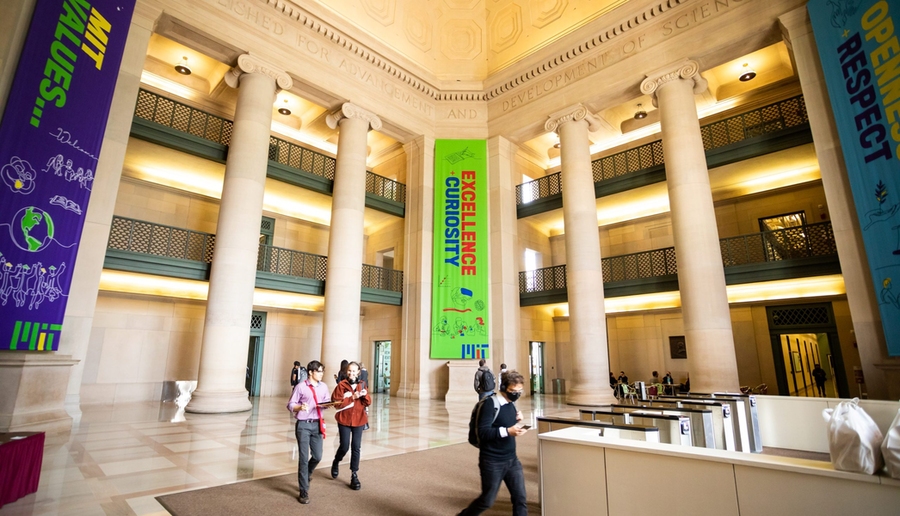
Previous image Next image
MIT's Supply Chain Management (SCM) Master's Program, housed within the MIT Center for Transportation and Logistics (CTL) at the Institute's School of Engineering, has been named top master's program for supply chain management for 2024 by three leading global rankings institutions: QS World University Rankings, Eduniversal, and Supply Chain Digital .
QS World University Rankings, recognized for its thorough evaluation of over 1,500 institutions across 104 locations worldwide, has singled out MIT SCM as the premier program in the field. QS considers five main facets in determining rankings: employability of degree recipients; alumni CEO and executive outcomes; tuition, alumni salaries, and return on investment; thought leadership and research impact; and class and faculty diversity. With an emphasis on career sustainability and growth, QS's acknowledgment reflects MIT's commitment to preparing students for success in today's dynamic business landscape.
Eduniversal, known for its exhaustive review of over 5,800 master's and MBA programs across 50-plus fields of study spanning more than 150 countries, also bestowed the No. 1 ranking upon MIT's SCM program. Eduniversal's assessment takes into consideration the MIT Global SCALE Network of six innovation centers (MIT CTL, Ningbo China Institute for Supply Chain Innovation, Zaragoza Logistics Center, Center for Latin-American Logistics Innovation, the Malaysia Institute for Supply Chain Innovation, and Luxembourg Center for Logistics and Supply Chain Management), underscoring MIT's global impact and leadership in real-world applications in supply chain education.
Supply Chain Digital , a leading industry publication with an audience of global logistics executives, recently honored MIT CTL as the provider of the No. 1 supply chain program globally. This recognition highlights MIT’s influence in shaping the future of supply chain from the perspective of company leadership and management.
In addition to its master’s program, MIT CTL offers an online MicroMasters program, which registered its one-millionth learner in late 2022. After finishing the online program, certificate holders can apply to MIT (and other universities) and obtain a full master’s degree in a single semester.
“Our program prides itself on its interdisciplinary curriculum and close collaboration with industry leaders,” says Maria Jesús Saénz, executive director of the MIT SCM Masters Programs, “so that our graduates can emerge equipped with the skills, knowledge, and mindset needed to tackle the complex and dynamic challenges facing modern supply chains. We are as committed as ever to fostering excellence and driving positive, real-world challenges.”
MIT CTL has been a world leader in supply chain management education and research for more than five decades. The center has made significant contributions to supply chain and logistics and has helped numerous companies gain competitive advantage from its cutting-edge research.
“We are thrilled by the recognition of the SCM program by these esteemed organizations,” says Professor Yossi Sheffi, director of the MIT CTL. “This achievement reflects the dedication of our faculty, staff, and students in serving as a world leader in supply chain management education and research by driving supply chain innovation into practice.”
Share this news article on:
Related links.
- MIT Supply Chain Management Program
- MIT Center for Transportation and Logistics
- MITx MicroMasters Programs
- MIT Global SCALE Network
- Eduniversal Best Masters Rankings
- QS World University Business Masters Rankings
- Supply Chain Digital Top 10
Related Topics
- Supply chains
- Transportation
- Graduate, postdoctoral
- Center for Transportation and Logistics
Related Articles
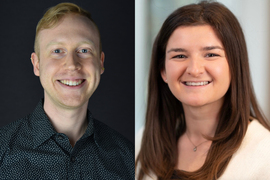
Erin Bahm, Steven Parks named 2024–25 UPS Fellows
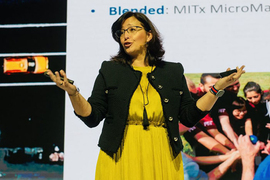
Opening pathways for future supply chain leaders

MITx MicroMasters Program in Supply Chain Management reaches 1 million enrollments
Previous item Next item
More MIT News
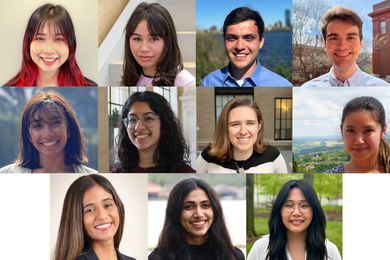
Eleven from MIT awarded 2024 Fulbright fellowships
Read full story →
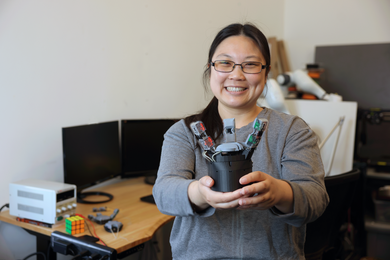
Robotic palm mimics human touch
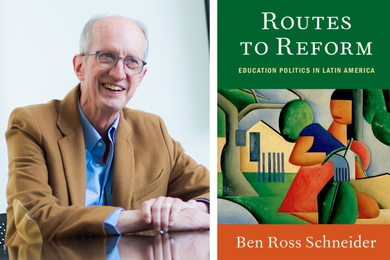
Trying to make the grade

Janabel Xia: Algorithms, dance rhythms, and the drive to succeed
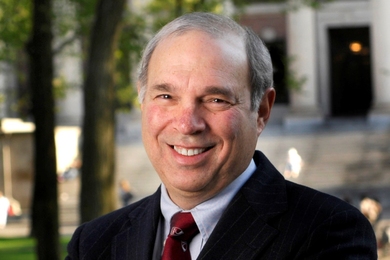
Jonathan Byrnes, MIT Center for Transportation and Logistics senior lecturer and visionary in supply chain management, dies at 75

Researchers develop a detector for continuously monitoring toxic gases
- More news on MIT News homepage →
Massachusetts Institute of Technology 77 Massachusetts Avenue, Cambridge, MA, USA
- Map (opens in new window)
- Events (opens in new window)
- People (opens in new window)
- Careers (opens in new window)
- Accessibility
- Social Media Hub
- MIT on Facebook
- MIT on YouTube
- MIT on Instagram

About Cambridge Judge
- Overview of the Business School
- History and today
- External recognition
- Diversity and inclusion
- Virtual tours
- Jobs at Cambridge Judge
- Giving overview
- Fundraising priorities
- How to give
- Impact and recognition
- Recruiters and organisations overview
- Recruit from Cambridge Judge
- Student consultancy projects
- Develop your talent
- Corporate speaker opportunities
- Special interest groups and societies
- News overview
- Announcements
- Programme news
- Student and alumni news
- Faculty news
- Research centre news
- Fundraising news
- Media coverage
- News room (for journalists)
FT Responsible Business Education Awards: 2 wins for Cambridge Judge
Purpose of Finance course wins top Teaching award and a study on paedophile hunters wins Academic Research award, while Cambridge Judge is Highly Commended for School-wide activities in the Financial Times awards for business education responsibility and impact.
Degree programmes
- Masters degrees overview
- Executive MBA
- Executive Master of Accounting
- Master of Finance (MFin)
- MSt in Entrepreneurship
- MSt in Social Innovation
- MPhil in Management
- MPhil in Technology Policy
- PhD and research masters overview
- PhD pathways
- Business Doctorate
- Master of Research in Management
- MPhil in Finance
- MPhil in Innovation, Strategy and Organisation
- MPhil in Strategy, Marketing and Operations
- Management Studies (Tripos)
- Virtual tours of the Business School
- Cambridge life
- Entrepreneurship at Cambridge Judge
- Financial aid
- Admission events
Non-degree programmes
- Entrepreneurship programmes overview
- Accelerate Cambridge
- Enterprise Tuesday
- Venture Creation
- EnterpriseTECH
- EnterpriseWOMEN
- Social Venture Weekend
- First Certificate in Business overview
- For learners
- For organisations
- Executive Education overview
- Online ExecEd programmes
- Open programmes for individuals
- Custom programmes for organisations
Need help funding your degree programme studies at Cambridge Judge?
Explore our scholarship and loan opportunities.
Executive Education
- Open programmes for individuals overview
- Programme finder
- New programmes
- Online programmes
- Managing People
- Managing Organisations
- Environmental, Social and Governance (ESG)
- Strategy and Growth
- Innovation and Technology
- Professional Service Firms
- Custom programmes for organisations overview
- Open programmes for organisations
- Clients and case studies
- Psychometric services
- Professional service firms
- Certificate of Achievement
- B Corp certification
- Digital certificates
- Visa information
- Meet the team
Not sure which programme is for you?
Search our portfolio of over 40 well-crafted programmes that will expand your skills and understanding in service of your organisational, personal development and career objectives.
- Research and teaching staff
- Honorary appointments
- Subject groups overview
- Economics and Policy
- Operations and Technology Management
- Organisational Behaviour
- Organisational Theory and Information Systems
- Strategy and International Business
- Research centre finder
- Alternative Finance
- Behavioural Economics and Policy
- Business Research
- Chinese Management
- Circular Economy
- Digital Innovation
- Endowment Asset Management
- Energy Policy Research Group
- Entrepreneurship
- Experimental & Behavioural Economics Group
- Finance, Technology and Regulation
- Financial Reporting and Accountability
- Health Leadership and Enterprise
- India and Global Business
International Human Resource Management
- Process Excellence and Innovation
- Psychometrics
- Regulatory Genome Project
- Risk Studies
- Social Innovation
- Wo+Men’s Leadership
- Impact and practitioner engagement overview
- Collaborate with our faculty
- Publications overview
- The Cadbury Archive
- Information and Library Services overview
- Research seminars
Faculty and research
- AI and technology
- Behavioural economics
- Career and personal development
- Entrepreneurship and innovation
- ESG and sustainability
- Equality, diversity and inclusion
- Finance and accounting
- Future of work
- Global strategy and international business
- Governance, economics, and policy
- Leadership and organisational behaviour
- Operations management
- Philanthropy
- Social impact

Exploring the rise of the global B Corp movement
The B Corp movement is helping to shift the focus of capitalism from shareholders to all stakeholders: find out how Cambridge fits in.
Find an expert
We have faculty, who can speak on many current UK and global issues, and are happy to be contacted by journalists.
- All insights
- Alumni council
- Regional Alumni groups
- Alumni Special Interest Groups (ASIGs)
- Alumni toolkit
- Alumni profiles
- Get involved
- CJBS network
- CJBS Connects: Worldwide
Leave your mark in LT1
The iconic Lecture Theatre 1 (LT1) is due for a refurbishment, and with it comes the opportunity for alumni, friends and other supporters of Cambridge Judge Business School to claim their seat in LT1.
- Faculty & research
Centre for International Human Resource Management
Thought leadership through advanced research; improving organisational, team, and individual performance, and providing bespoke consultation and high-level executive education programmes.
- Thought leadership
- Advisory overview
- Coaching process and approach
- Executive education
Our diverse team of highly knowledgeable and experienced academics and practitioners work in a wide variety of organisational contexts.
Our focus is on developing and disseminating rigorous and practical concepts relevant to the field of people management.
Learn more about us
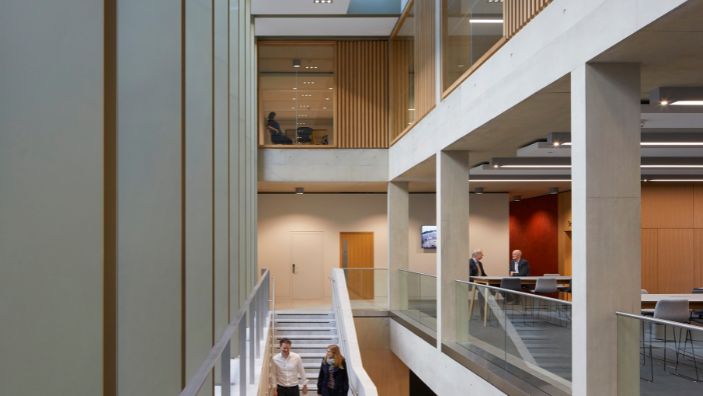
There are three key strands to our work: innovative research, delivering thought leadership on an advisory basis and our immersive and impactful education programmes.

We partner with key players in the industry to conduct thorough, insightful and practical research, focusing on improving the performance of people and organisational processes, particularly in innovating contexts.

Thought leadership papers
Our faculty publish reports, articles and papers regularly in internationally-recognised journals. Additionally, you can read our key insights in books – find out more about our publications.
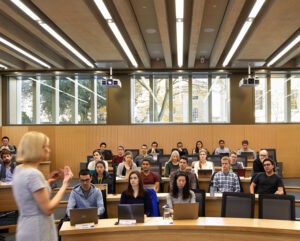
Join one of our tailor made Executive Education programmes on leadership, teams and organisational effectiveness.
Annual conference and standout projects
Network transformation and how it could change the future of work.
We’re taking part in a £5 million research collaboration set to radically change the UK’s internet infrastructure to meet the needs of a revolution in technology in society.
Governance and risk management
Watch this NG-CDI presentation on ‘Governance and Risk Management’ by faculty member, Dr Philip Stiles, exploring how autonomics at scale is used to improve how we manage business risks. He also looks at how to avoid the pitfalls of emergent systems, at both technical and organisational levels.
Automation in financial services
A case study of automation in financial services in the investment banking sector – exploring risk and government issues in algorithmic trading.
Digital transformation
A case study of digital transformation in a civil engineering firm.
Technology, risk and organisations
We look at how the successful operation of an increasingly autonomous infrastructure must connect with the principal business functions of the company. Watch our video exploring our learnings from industry sectors treading these paths; such as financial algorithmic trading and retail logistics.
Board succession
We examine how organisations prepare for the critical task of selecting and appointing members to sit on the board of directors. This a major element of organisational renewal and it is often a difficult and contested process. Our colleague Jens Jenssen has completed a study in collaboration with Egon Zehnder.
Office politics (Cambridge Judge Business Debate podcast series)
Though seemingly trivial, office politics can affect the performance of employees and organisations. The latest podcast in the Cambridge Judge Business Debate series asks how we can improve them.
As part of Cambridge Judge Business School, we share the rich historic pedigree of the University of Cambridge. Innovation is key to our projects and programmes, as we work with internationally recognised partners who are all experts in their fields. Our goal is to disseminate ground-breaking research and provide exemplary educational programmes to help evolve our sector.

I thought the course was excellent! The speakers were all experts in their field with their own unique perspectives and insights to share both from an academic point-of-view and a practical one. Throughout the four half-day sessions the faculty brought the topic of high-performance teams to life with interesting real-life scenarios in business, sports and other team-based scenarios to illustrate the academic learnings and to challenge the way we think about success in teams. The format was very well-adapted to an online setting, utilising breakout rooms for peer-to-peer activities, interactive digital features to encourage student participation, and plenty of opportunities for discussion and ideas-sharing. I found the content in the curriculum very interesting and came away feeling inspired and motivated to put the learnings into practice.
News and insights from the Centre for International Human Resource Management
Read the latest news and insights from the Centre for International Human Resource Management. To stay up to date with our events, latest projects, report launches and news by signing up to our mailing list .

How will network transformation change the future of work?
Cambridge Judge Business School’s Centre for International Human Resource Management is a partner in a £5 million research collaboration that is set to radically change the UK’s internet infrastructure to meet the needs of a revolution in technology in society. Breakthrough digital innovations such as the Internet of Things, 5G, and virtual reality require a transformation in how networks are developed and maintained. Jointly funded the Engineering and Physical Sciences Research Council (EPSRC), and telecoms company BT, the project brings together multidisciplinary researchers from the University of Cambridge, Lancaster University (project lead), University of Surrey and University of Bristol, with specialist knowledge ranging from networking, communications, statistics and AI to industrial automation and organisational behaviour. Dr Philip Stiles, Senior Lecturer in Organisational Behaviour, will lead the Cambridge Judge Business School contribution, looking at how changes in network design and digital services will influence the nature of work. He said: This project is a tremendous opportunity to see how transformations in technology affect how organisations and the people within them adapt. The impact of major changes in digital infrastructure and the greater reliance on AI will have major implications for organisational design and culture and also on the interactions people will…

Following the money
Does performance-related pay work? Dr Jonathan Trevor explores the issues. Pay for performance matters. It's a practice that crosses sectors, affects millions of employees globally and regularly makes the headlines. But there's a problem, says Dr Jonathan Trevor, Lecturer in Human Resources & Organisations and Co-Director of the Centre for International Human Resource Management (CIHRM). It might not work. "Companies don't like to talk about this," he says. "But we need a debate on this issue, because pay for performance is widespread, and has become the dominant logic of employee reward – the notion that we can use pay as a carrot, or a stick, and drive positive employee behaviour. In reality, I believe pay is like plumbing. You only ever notice it when it goes wrong. It can be used in good or bad ways – but often it is the latter. It is often misused, or used inappropriately, as a crutch for poor leadership – especially in the financial sector." For five years, Dr Trevor acted as a retained academic advisor to The Remuneration Group, a consortium of senior remuneration directors working in FTSE 50 companies who met each year for a two-day round table and research exposition…
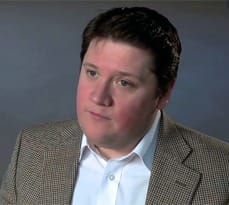
Reward at work strategies for Cambridge summit
A major conference around the future of reward at work is to be held in Cambridge at the end of September, organised by Cambridge Judge Business School and America's leading HR professionals' association, WorldatWork. Titled 'Future Reward: Strategies for a Hyper-competitive World', the summit aims to attract broad interest with a guest-speaker programme that includes policy-makers, practitioners and academics. [vimeo id="67136243"] Dr Jonathan Trevor, Lecturer in Human Resources & Organisations at the School, is delighted that the summit is coming to Cambridge to tackle the 'thorny issues' relating to pay and workplace reward. He says the focus is on change, especially positive change for which there is no option. "It is something we have to confront, embrace and move forward, treating it as an opportunity. We won't do that by having separate, discrete conversations or by trying to grapple with it in our own way, [but] by actually coming together as a community of academics, practitioners and policy-makers and addressing these thorny issues." Dr Trevor is Co-Director of the Centre for International Human Resource Management. He is to chair the summit, and says the programme will extend far beyond the HR sector and is already raising interest across business, charity,…
Connect with us
For enquiries, please contact:
Cambridge Centre for International Human Resource Management 25 Trumpington Street Cambridge CB2 1QA UK
[email protected]
Follow us on social media
Connect with us on LinkedIn
Subscribe to the Centre’s mailing list

IMAGES
VIDEO
COMMENTS
Students only continue to the PhD in Management Studies from the MRes at CJBS, from a research MPhil programme at CJBS or occasionally from the Cambridge MPhil Economics Research. For full details please see the departmental website. For MRes students, continuation on to the PhD is immediate upon obtaining 70% or higher overall average and 70% ...
Founded in 1990, Cambridge Judge Business School is relatively young, but draws on centuries of academic excellence courtesy of Cambridge University. The one-year Cambridge MBA program aims to "transform individuals, organizations and society". With ties to one of the world's top-ranked universities, the admission process is a rigorous one.
The degree of Doctor of Philosophy (PhD) is the University's principal research degree for graduate students and is available in all faculties and departments. A Cambridge PhD is intellectually demanding and you will need to have a high level of attainment and motivation to pursue this programme of advanced study and research.
The MPhil in Innovation, Strategy and Organisation (ISO) is a 9-month, specialist research programme ideal for those wishing to continue to a Cambridge Judge Business School PhD via both the Strategic Management and the Organisational Theory and Information Systems pathways.
FindAMasters summary. Embark on a transformative academic journey with the MRes + PhD in Management Studies at Cambridge Judge Business School. This rigorous programme is designed for master's level students seeking to delve deep into research methods and the core principles of their chosen discipline.
The PhD Programme at Cambridge Judge Business School is designed to prepare students for an academic career in a business school. It develops PhD students who challenge conventional wisdom and advance knowledge through innovative theory and empirical research leading to publications in top-tier academic journals.
Our PhD students receive high quality training on a variety of research methods and are exposed to cutting edge research conducted by our own Faculty members, as well visitors to the Faculty (via the Cambridge-INET Institute, seminars, PhD workshops, locally organised conferences, etc.). Faculty members can supervise a wide range of topics from ...
The Finance group at Cambridge Judge Business School covers a broad spectrum of issues in finance. We define finance as more than a set of financial transactions - it is the glue that holds together corporations, capital markets and the real economy. We pursue research on empirical and theoretical corporate finance, asset pricing, and ...
Potential research topics within the IfM encompass the full range of management, technology and policy issues to address some of the key issues in modern manufacturing and working extensively with industry. Qualifications. The IfM is part of the Department of Engineering and offers the following research degrees: PhD in Engineering; MPhil in ...
University of Cambridge. We are one of the world's oldest universities and leading academic centres, and a self-governed community of scholars. Cambridge comprises 31 Colleges and over 150 departments, faculties, schools and other institutions. By Department/School/Faculty
Continuing. It is not necessary to have a Master's degree to gain entry to the PhD; applicants can apply on the basis of their undergraduate degree (subject to international students meeting the minimum criteria for postgraduate entry to the University). Students applying with a taught Master's degree from Cambridge are expected to have ...
MIT Sloan produces top-notch PhDs in management. Immersed in MIT Sloan's distinctive culture, upcoming graduates are poised to innovate in management research and education. Here are the academic placements for our PhDs graduating in May and September 2024. Our 2024-2025 job market candidates will be posted in early June 2024.
The Course Aims and Objectives. The Cambridge Police Executive Programme (MSt in Applied Criminology and Police Management) is a two year part-time course which offers a globally relevant framework for preserving and enhancing democratic policing in the face of international challenges through developing senior leaders in policing, law enforcement and associated organisations.
FT Responsible Business Education Awards: 2 wins for Cambridge Judge Purpose of Finance course wins top Teaching award and a study on paedophile hunters wins Academic Research award, while Cambridge Judge is Highly Commended for School-wide activities in the Financial Times awards for business education responsibility and impact.
Manufacturing and Management. Strategic Aim: Developing new understanding of manufacturing technology, operations, strategy and policy, in close partnership with industry, in order to improve industrial performance. Research within the Manufacturing and Management Division, also known as the Institute for Manufacturing (IfM), addresses the most ...
The aim of the PhD course is to provide a sound foundation in study design and conduct, data acquisition and handling, quality issues, statistics, discussion of research ethics, issues of intellectual property, multidisciplinary team working, access to a variety of research settings and dissemination of findings. In addition to standard ...
MIT's Supply Chain Management (SCM) Master's Program, housed within the MIT Center for Transportation and Logistics (CTL) at the Institute's School of Engineering, has been named top master's program for supply chain management for 2024 by three leading global rankings institutions: QS World University Rankings, Eduniversal, and Supply Chain Digital.
PhD and research masters overview; PhD pathways ... (EPSRC), and telecoms company BT, the project brings together multidisciplinary researchers from the University of Cambridge, Lancaster University (project lead), University of Surrey and University of Bristol, with specialist knowledge ranging from networking, communications, statistics and ...